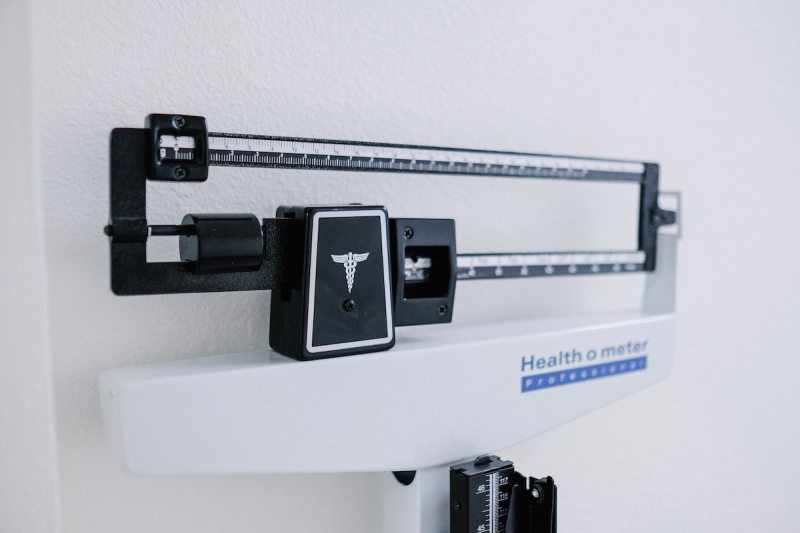You’ve likely heard about how nutrients such as fiber, protein, and iron are essential for maintaining your health. While this is certainly true, there are many vitamins and minerals that don’t necessarily get the attention they deserve, and chromium is one of them. As a nutritionist, I am always encouraging my clients to either be more intentional with their diets or take a multivitamin to try and cover all their bases. It can be hard sometimes to know exactly what you are missing.
Keep reading to learn about the many chromium benefits, the best food sources, advice on supplementation, and more.
What is chromium?

You must wonder whether chromium exists only as a transition metal. Perhaps we have been consuming metal all our lives! However, it is not so. Chromium exists in two vital forms: hexavalent (+6) and trivalent (+3).
While the former is a hazardous and carcinogenic secondary product of stainless steel and industrial processes, the latter is a nontoxic trace element that exists as a dietary supplement and is present in several chromium foods. So, a dietician would be more concerned with trivalent chromium.
But what are the chromium benefits you need to know about?
4 benefits of proper chromium consumption

1. Diabetes prevention
As a chronic medical condition, diabetes occurs when the pancreas produces low amounts of insulin or when your body fails to utilize insulin. It can lead to death. However, studies have shown that chromium (or its supplements) can prevent diabetes by boosting insulin, a vital hormone that regulates blood sugar and glucose in your body. So, taking chromium appropriately can increase insulin sensitivity, and when that happens, your chances of having diabetes can be reduced significantly.
2. Weight loss
Research tells us that chromium picolinate might be related to weight loss, reduced chances of obesity, and regulated food intake. In fact, a PubMed article shared that “chromium has been reported to increase lean body mass and decrease percentage body fat, which may lead to weight loss in humans.”
Likewise, experts have discovered that consuming high amounts of chromium can reduce fat accumulation in a person’s body (adipose tissue). Though many of these studies are inconclusive, it is essential to note that a high possibility of chromium promoting weight loss exists.
3. Skin health improvement
As mentioned, chromium indirectly regulates blood sugar levels by improving insulin. Therefore, taking the mineral in the right way can enhance skin health. Likewise, foods high in chromium have antioxidants and phytonutrients that can combat typical aging signs and acne. It can also improve your skin’s appearance.
4. Cholesterol reduction
Taking too much cholesterol can have adverse effects on your body. Over time, fatty deposits may form in your blood vessels, gradually preventing blood flow to your arteries. You are then at risk of developing a stroke or heart attack. However, chromium can prove helpful in the metabolism of fats, such as cholesterol. In other words, it can reduce the amount of cholesterol in your blood, engendering healthier arteries.
How much chromium should you take?

No official data regarding the daily intake of chromium exists. Nevertheless, its adequate intake (AI) should be a guiding principle. Therefore, men between 19 and 50 years old should consume 35 micrograms of chromium per day.
On the other hand, women in the same age range can take 25 micrograms daily. During pregnancy, they should take 30 micrograms daily, whereas lactating women should consume 45 micrograms. Both men and women over 50 should take 30 micrograms of chromium daily.
9 foods high in chromium

1. Broccoli
Broccoli, or Brassica oleracea, is an edible green plant. People eat its large flower heads and small leaves as a vegetable. In addition, you can consume broccoli raw or cook it. The plant is also an excellent source of vitamins A, C, K, and B6. More importantly, broccoli is rich in chromium since one cup contains 22 micrograms, which is about 62% of the recommended daily value!
2. Grape juice
Grapes are fruits that grow in clusters of various colors. You can consume it in several ways, including as a juice. Generally, grapes are excellent sources of vitamin K, potassium, thiamine, and riboflavin. Likewise, consuming grapes in juice form is also beneficial since it is chromium-rich. A cup of grape juice provides 7.5 micrograms of chromium, equivalent to 21% of its daily value.
3. Orange juice
Oranges are fruits of several species with edible inner flesh. Like grapes, they are rich in vitamins, minerals, and chromium. When consumed in juice form, a cup provides 2.2 micrograms of chromium or 6% of its daily value.
4. Eggs
Besides being rich in protein, vitamins, calcium, and fats, eggs also contain chromium in high amounts. Egg yolk contains six micrograms of chromium per 100-gram serving or about 18% of its daily value.
5. Turkey breast
Like eggs, turkey is also an excellent source of protein and vitamins. In addition, if you do not eat the skin, it is a low-fat food. Likewise, turkey breast is another chromium-rich food since a serving (or three ounces) contains 1.7 micrograms, equivalent to 5% of the mineral’s daily value.
6. Apples
Apples are an excellent source of carbohydrates and vitamins. They also contain minerals such as chromium since one medium apple delivers 36 micrograms or around 102% of the mineral’s daily value.
7. English muffins
Generally, whole wheat products are chromium-rich foods; English muffins are an excellent example. One standard-sized muffin contains 3.6 micrograms of chromium or 10% of its recommended daily value.
8. Ham
Ham is an excellent source of protein and minerals such as selenium, zinc, and chromium. Like English muffins, a serving of three ounces of ham provides 3.6 micrograms of chromium, which corresponds to 10% of its daily value.
9. Mussels
Generally, shellfish are great sources of chromium, and mussels, in particular, contain the mineral in high amounts. A 3.5-ounce serving of mussels contains 128 micrograms of chromium, which is approximately 365% of the daily value. How about an example of a meal rich in chromium?
Are there adverse effects of chromium?

While chromium is certainly a nutrient that the body needs, there is always such a thing as too much. This can especially be true if you are taking a chromium supplement.
In rare cases of very high intakes of the mineral, some people have experienced the following symptoms:
- Anemia
- Weight loss
- Renal failure
- Stomach issues
- Irregular heart rhythms
- Abnormal blood sugar levels
If you have any concerns about your own symptoms or about taking a chromium supplement in the first place, consult with your doctor.
When should you take chromium supplements?

Many people choose to take chromium supplements to help regulate their blood sugar levels, support weight loss efforts, and improve insulin sensitivity. If you do choose to add this supplement to your routine, try to take it with a meal to enhance absorption and prevent stomach discomfort. If you’re managing blood sugar, such as in type 2 diabetes, it can be taken consistently to help stabilize levels, but always consult a doctor first.
If you take oral diabetes medications or corticosteroids, you may need to avoid chromium supplements, as they could potentially affect blood sugar control. It may also interfere with certain heart medications, including those for high cholesterol or blood pressure. If you are worried about possible interactions, be sure to check with your healthcare provider before starting supplementation.
Frequently asked questions
What does chromium do for the body?
It can do several things; a few include the reduction of the body’s cholesterol intake, a reduction in weight gain, and the prevention of diabetes.
What are the signs of chromium deficiency?
Chromium deficiency occurs when there is an insufficient intake of the mineral. You may experience confusion, weight loss, impaired coordination, and poor glucose tolerance when that happens. However, chromium deficiency is uncommon.
Does chromium help with weight loss?
As mentioned above, research suggests chromium can reduce fat accumulation in one’s body. So, it can help with weight loss to an extent.
When should you take chromium?
Chromium or its supplements can disrupt your sleep. Therefore, it would help if you took it in the morning. However, before taking any chromium supplement, contact your physician to ensure it is right for you.





